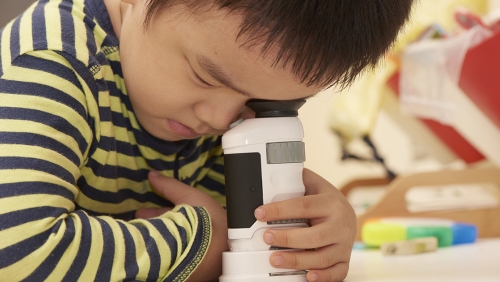
Maier’s research focuses on impact and implementation evaluations of childcare and early education programs that support the cognitive and social-emotional development of children from families with low incomes. She has extensive experience in design, start-up, impact, implementation/field research, and measurement activities for a variety of research projects. Currently, Maier is the principal investigator and project director of Head Start Connects, a descriptive study funded by the U.S. Department of Health and Human Services (HHS) that examines the coordination of family support services in Head Start programs. She is the principal investigator and project director of the HHS-funded Variations in Implementation of Quality Interventions project and the deputy project director of the Expanding Children’s Early Learning (ExCEL) Network project, both of which are three-group, random assignment studies that examine the effect of classroom quality on child outcomes. She also leads measurement and implementation-related tasks for Building and Sustaining the Early Care and Education Workforce, a project that aims to inform the recruitment, support, and retention of a qualified, healthy, and stable workforce that reflects the linguistic, racial, and ethnic diversity of the families and children it serves.
Previously, Maier led the measurement team on the ExCEL P-3: Promoting Sustained Gains from Preschool to Third Grade study, where she developed an aligned curriculum-fidelity tool for use in preschool through third-grade classrooms in Boston. She led the implementation and measurement teams on Making Pre-K Count, which examined the effects of a preschool mathematics program in New York City. She received a grant from the Foundation for Child Development’s Young Scholars Program to conduct What Matters Most for Teachers and Young Children, a secondary analysis of Making Pre-K Count data in which she examined associations among teacher professional development, specific teacher practices, and child outcomes, and described patterns of teacher practice as they naturally occur. She also coauthored a literature review examining the effect of family involvement on children’s learning. Maier received her PhD in applied developmental psychology from the University of Miami, where she was an Institute of Education Sciences predoctoral fellow. Before joining MDRC, Maier was a postdoctoral research associate at the Center for Advanced Study of Teaching and Learning at the University of Virginia.
Projects
Products
Other Publications
Bohlmann, Natalie, Michelle F. Maier, and Natalia Palacios. 2015. “Bidirectionality in Self-Regulation and Expressive Vocabulary: Comparisons Between Monolingual and Dual Language Learners in Preschool.” Child Development 86, 4: 1,094-1,111.
Williford, Amanda, Michelle F. Maier, Jason Downer, Robert C. Pianta, and Carolee Howes. 2013. “Understanding How Children’s Engagement and Teachers’ Interactions Combine to Predict School Readiness.” Journal of Applied Developmental Psychology 34: 299-309.
Downer, Jason, Faiza Jamil, Michelle F. Maier, and Robert C. Pianta. 2012. “Implications of Information Processing Theory for Professional Development of Early Educators.” In Carolee Howes, Bridget K. Hamre, and Robert C. Pianta (eds.), Effective Early Childhood Professional Development: Improving Teacher Practice and Child Outcomes. Baltimore, MD: Brookes Publishing Co.
Maier, Michelle F., Virginia E Vitiello, and Daryl B. Greenfield. 2012. “A Multilevel Model of Child- and Classroom-Level Psychosocial Factors that Support Language and Literacy Resilience of Children in Head Start.” Early Childhood Research Quarterly 27: 104-114.
Maier, Michelle F., Daryl B. Greenfield, and Rebecca J. Bulotsky-Shearer. 2012. Development and Validation of a Preschool Teacher Attitudes and Beliefs Toward Science Teaching Questionnaire.” Early Childhood Research Quarterly 28: 366-378.
Dominguez, Ximena, Virginia E. Vitiello, Michelle F. Maier, and Daryl B. Greenfield. 2010. “A Longitudinal Examination of Young Children’s Learning Behavior: Child-Level and Classroom-Level Predictors of Change Throughout the Preschool Year.” School Psychology Review 39: 29-47.






